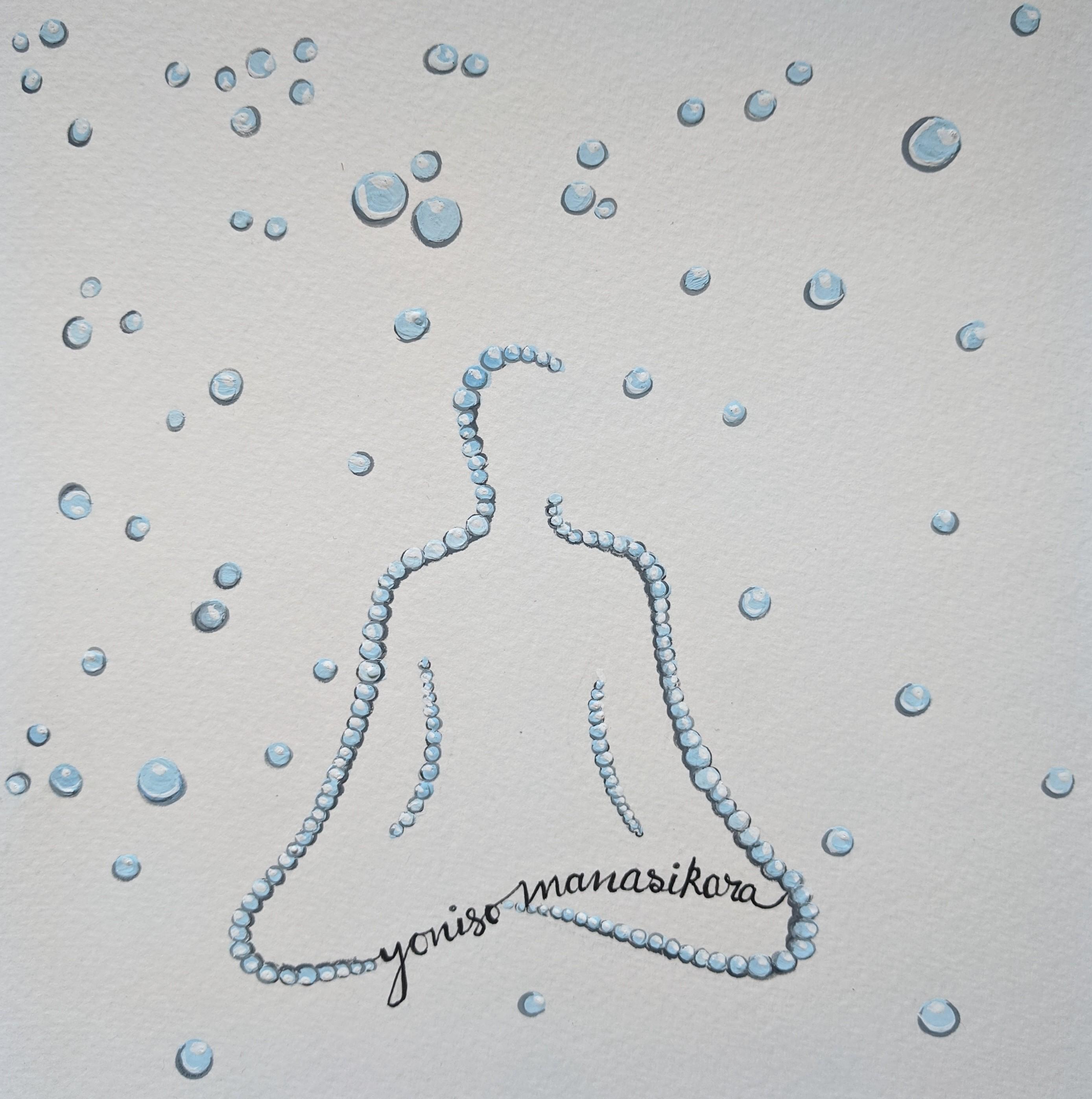Radical Reflection

IMAGE OF THE WEEK
We are grateful to Rupali Bhuva for offering this hand-made painting for this reading.

We feel we can capture something by thinking about it. In reality, when we grasp at thoughts, the very process of trying to possess a piece of life ensures that it continually eludes us. We can never hold on, so the thoughts go round and round.
The transformative power of a conscious, mindful thought is that it reveals its own transiency. For example, the thought “Who is thinking?” is an invitation to make contact with the present moment. In doing so, the thinking process is recognized for what it is. When we’re not so enchanted by our thoughts, we notice something else, something quite simple. We notice that all thoughts manifest and dissolve back into silent listening. This is a great relief. We don’t have to become shaped by our thinking. We can be liberated from its bondage. In seeing thought as “just thought,” the sky of the heart is revealed, with no footprints. “You won’t find the sage out there.” When there is wisdom, the endless searching for happiness “somewhere else” vanishes. Where is there to go? Beautiful thoughts and ugly thoughts, all arise and cease in awareness, and yet awareness remains unmoved.
Awakening means a fundamental shift takes place. It is a shift from looking for ourselves outside in the ten thousand things to recognizing that our true nature is beyond definition. That transformation of understanding is the work of wisdom, the essential quality of heart that carries us across the turbulent sea of suffering to safety and ease. The Buddha refers to this liberating activity as Yoniso manasikara. It is often translated as “wisely reflecting.” Yoni means “womb” and manas refers to the mind. Taken as a whole we can interpret the phrase as “placing the mind and its activities in the womb of awareness.” Wise reflection does not stop at the superficial cognition of the world, but it plumbs the depths of awareness, exploring the unmoving ground of “knowing” within which all the apparent differences of life manifest. I like the English translation “radical reflection” for this significant term, since it echoes the “re-membering” of all phenomena to its source, the matrix of awareness that makes all experience possible.
The word radical has its etymological connection to root. Radical reflection contemplates the root, the origin, the place where all things merge.
Kittisaro is a former monk and the founder of a hermitage in South Africa. Excerpt above from the article, Tangled in Thought.
SEED QUESTIONS FOR REFLECTION: What does 'radical reflection' mean to you? Can you share an experience of a time you were able to connect with the unmoving ground of 'knowing' within which all apparent differences of life manifest? What helps you place your mind and its activities in the womb of awareness?